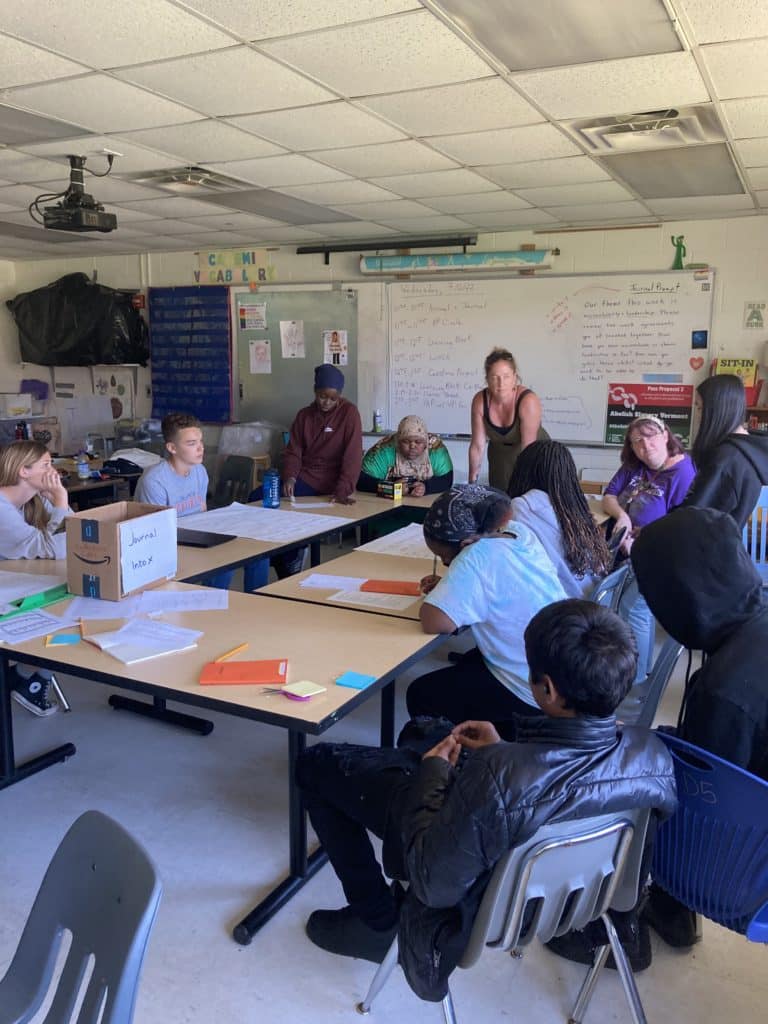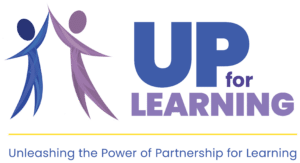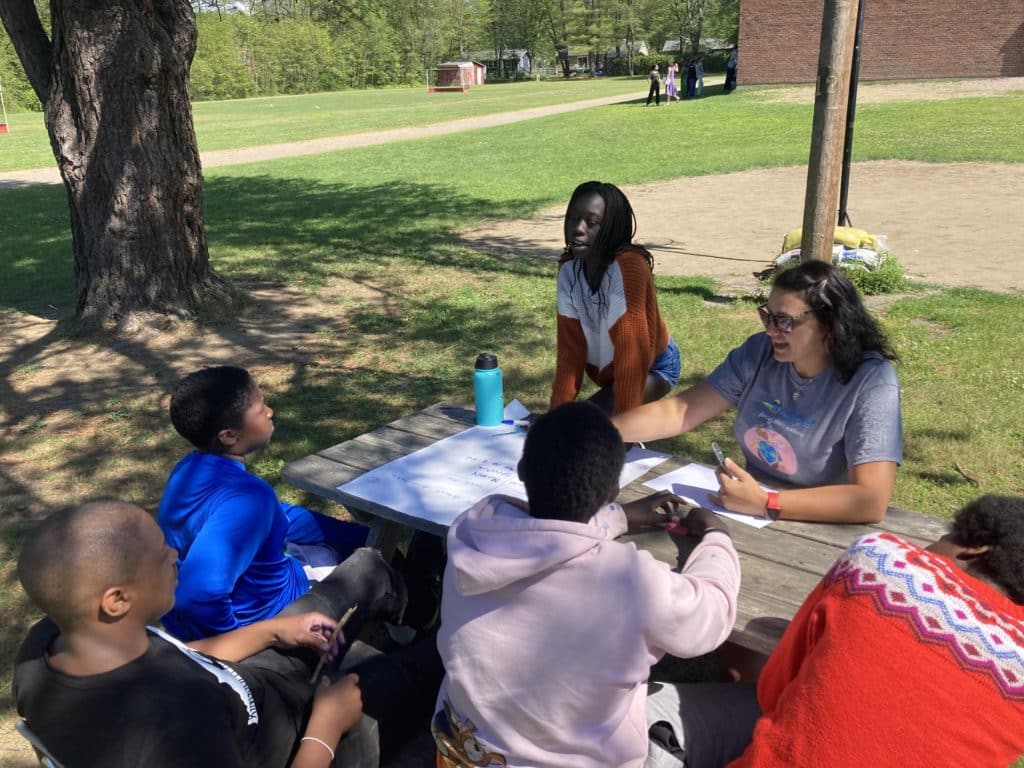
“Where on the continuum of youth-adult partnership, from seed to tree, would you place your school’s culture?”
This was one of the key questions explored by the youth and educators taking part in the Burlington School District’s second annual Summer Racial Justice Academy (SRJA), when facilitators from UP for Learning ran an hour-long session on youth-adult partnership. The facilitators presented UP’s Seed to Tree model, where the phases of youth-adult partnership are represented by four drawings of a growing tree, from the seed (youth as recipients), to the sprout (youth as consultants), to the sapling (youth and adults as emerging partners), to the mature tree (youth and adults as full partners). Three of the UP youth facilitators leading the workshop, Dieuna, Nynkor, and Binti, are rising 9th graders at Burlington High School, and are also taking part in the SRJA.
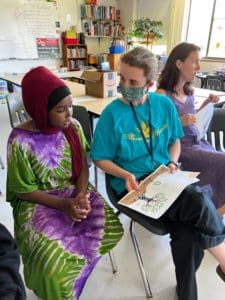
Over the three weeks of the Academy, fifty youth from Hunt Middle School, Edmunds Middle School, and Burlington High School are gathering to explore themes of relationships and healing, leadership and accountability, and transformation and action in their communities. These students are taking part in daily journal writing exercises, facilitating Restorative Circle dialogues, serving as compensated consultants in discussions with school leaders, hosting guest artists and organizers from the community, and taking field trips to places like the Clemmons Family Farm, a property in Charlotte owned by a Black family since the 1960s. When asked about where they see their school on the Seed to Tree continuum, youth and educators gave thoughtful responses, naming times when they have experienced each phase, whether it was in a particular program at their school, like Burlington High School’s City and Lake Semester, or a particular aspect of school culture, like the creation of Hunt Middle School’s dress code. After exploring this model, students divided into small groups to answer the questions, “What do adults gain when they shift to full partnership with youth? What do they lose?” and “What do youth gain when they shift to full partnership with adults? What do they lose?” By discussing these questions, the participants in the SRJA can begin (or can continue) the process of moving their schools towards the model of the mature tree, when youth and adults work in full partnership.
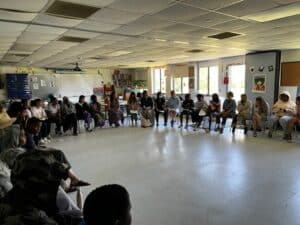
The culmination of the students’ participation in the Summer Racial Justice Academy is a capstone project, when they work in groups to create a project under the themes of youth organizing, visual art, documentation, social justice education, or performance art. In the final days of the Academy, they will present their projects to members of the district’s leadership, including superintendent Tom Flanagan, with the goals of sharing their perspectives, and working together to make Burlington schools more inclusive and responsive to the needs of every student. Before the Academy participants deliver their final presentations, UP will visit a third and final time, and will give them the opportunity to practice sharing their work with each other. We are so excited and inspired by the brave conversations about school culture that these youth are engaging in, and cannot wait to see them present their capstone projects!
